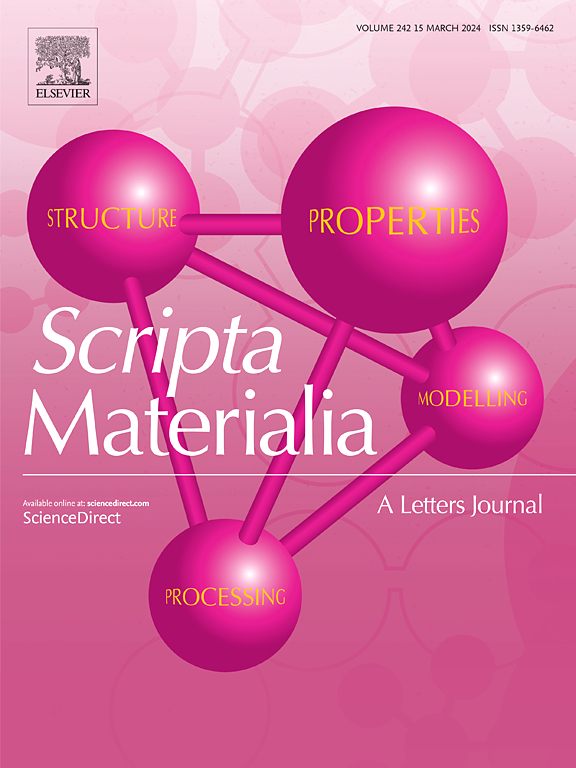Enabling strong and formable advanced high-strength steels through inherited homogeneous microstructure
IF 5.3
2区 材料科学
Q2 MATERIALS SCIENCE, MULTIDISCIPLINARY
引用次数: 0
Abstract
Fabricating quenching and partitioning (Q&P) steels with less mechanical heterogeneity among phases is crucial for achieving balanced strength and formability. In the present study, we demonstrate a strategy for fine-tuning the microstructural inheritance effect to optimize the final microstructure. This approach involves a rapid cooling and tempering step after hot rolling to template an initial microstructure with uniformly distributed ferrite laths. The final microstructure contains a higher volume fraction of primary martensite and stable retained austenite, leading to enhancement in both strength and ductility. The templating method also eliminates bulky ferrite and significantly reduces strain localization, as demonstrated by microscopic digital image correlation (μ-DIC). The templated final microstructure not only achieves higher yield strength compared to existing Q&P980 steels, but also exhibits simultaneous improvement in elongation and stretch-flangeability. Our findings suggest that it is essential to consider and leverage the inheritance effect to optimize products with long processing chains.

求助全文
约1分钟内获得全文
求助全文
来源期刊

Scripta Materialia
工程技术-材料科学:综合
CiteScore
11.40
自引率
5.00%
发文量
581
审稿时长
34 days
期刊介绍:
Scripta Materialia is a LETTERS journal of Acta Materialia, providing a forum for the rapid publication of short communications on the relationship between the structure and the properties of inorganic materials. The emphasis is on originality rather than incremental research. Short reports on the development of materials with novel or substantially improved properties are also welcomed. Emphasis is on either the functional or mechanical behavior of metals, ceramics and semiconductors at all length scales.
 求助内容:
求助内容: 应助结果提醒方式:
应助结果提醒方式:


